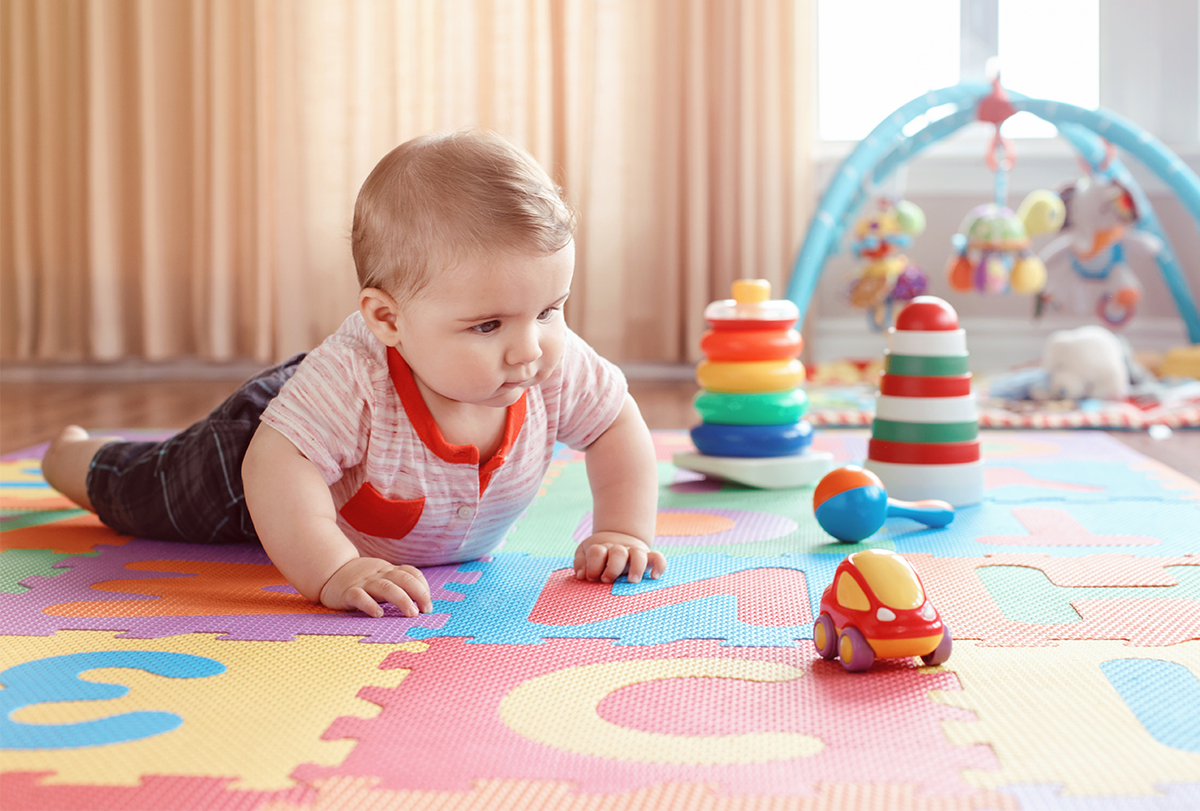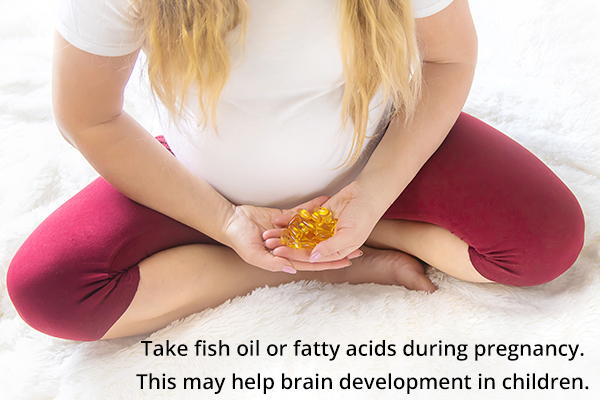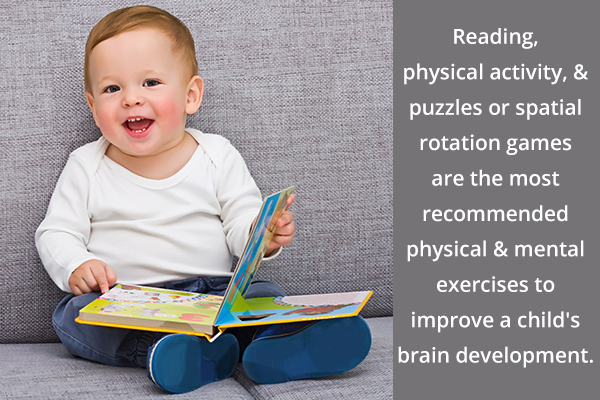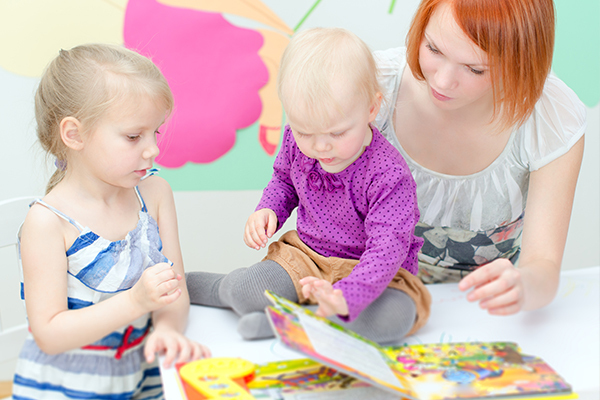In this article:
Everyone knows that children are highly impressionable beings, but this isn’t merely about how quickly they pick up habits but also about their actual brain development. The brain starts forming when the baby is still in the womb, and it continues to grow rapidly throughout early childhood.

Although mental and cognitive maturity is a lifelong process, its foundation is laid during the first few years after birth. But many people don’t realize the importance of these formative years, assuming that babies are too young to make sense of their environment.
However, decades of research have shown that a child’s living conditions and upbringing have a significant bearing on his mental, psychological, and emotional development.
At What Age Is a Baby’s Brain Fully Developed?
The brain is not fully developed until the early 20s as it continues to lay down tracts of myelin, which are fatty superhighways that help the brain run faster. At birth, it is about ¼ of the size of an adult, and it is nearly fully grown by age 5 and continues to develop until the early 20s.
This is why adolescence is a time of upheaval and increase in risk-taking behaviors and why adolescents are more susceptible to negative effects of drug and alcohol use because the brain is not all the way developed.
Basic Measures to Improve Brain Development in Children

Here are some of the most basic measures that every parent must adopt to help their child grow mentally, psychologically, and emotionally during the early years:
- Take fish oil or fatty acids during pregnancy. This may help brain development. (1)
- Emotional development can be improved by touch and cuddling and actively engaging your child.
- Reading is great for a child’s brain development (2) and forms the cornerstone to later academics.
- Make sure your child gets plenty of sleep. (3)
Use of Visual Aids to Stimulate Your Child’s Brain Development
I think visual games do help older people with memory impairment improve their cognitive functioning.
As far as younger children, visual aids may help children with learning issues. Remember that kids that are nonverbal will be able to communicate using visual aids. I am not sure how far they will go with the brain development of children. However, providing your kids with an enriching world is very important.
Read to them, play cards or memory games, and allow them to use manipulations such as blocks or Legos. These all go a long way to help improve their visual memory and to help with the STEM sciences, such as engineering. So, it’s a great time also to sign up for robotics and coding when they are young.
But it is not just visual aids. Sounds are also very important. Play music and allow them to play instruments. (4) Art and creativity also allow your child to fully develop all the areas of their brain in an enriched nurturing environment. (5)
Exercises to Promote Brain Development in Children

Exercises, whether physical or mental, prove very beneficial for a child’s brain development. Some of the most recommended ones include:
- Reading – Read to your child. Have them read small easy books and identify pictures and name words.
- Physical activity – This is great for brain development including coordination. (6) Things like learning karate or tennis can help improve coordination and balance. For example, my daughter was clumsy and I put her in gymnastics, and she got way more coordinated.
- Puzzles or spatial rotation games – Building complex Legos can contribute to brain development and help your child improve in the STEM sciences, such as engineering. (7)
Foods That Are Good for Your Child’s Brain Development
A diet high in fiber and low in sugar and artificial coloring sweeteners (8) is recommended. Nothing from a package, if possible. Think: if it grows from the ground, give it.
If it is not processed and the fewer ingredients on the package (especially ones that you don’t recognize), the better. Nuts, avocados, and fish are great brain-healthy foods to improve cognition and mental alertness.
Unhealthy Pregnancy Habits That Can Hamper Brain Development in Children
Eating too much sugar, alcohol consumption, smoking, not getting enough sleep, depression, or too many medications (9) can negatively affect brain development in children.
Importance of Breastfeeding to Boost Brain Development in Children
Breastfeeding is important, but it’s not the end of the world if you need to use formula.
Breastfeeding is a great way to prevent obesity, help boost the immune system, and prevent childhood allergies. However, I was not breastfed and I am a smart doctor. So, it is okay if it doesn’t work out with the breastfeeding.
Negative Effect of Excessive Screen Time on a Child’s Brain Development
LED exposure is only negative for children if you put them in front of the TV all day and forego anything else such as physical exercise, puzzles, reading, social interaction, and everything else, but a little TV won’t hurt.
Can Caffeine Cause Adverse Effects on Children?
Yes. It can cause increased heart rate, insomnia, and headaches. (10)
Role of Parent-Child Bonding in the Latter’s Development

A secure attachment is very important to the child’s social and emotional well-being. To create a healthy emotionally regulated child, there needs to be early parent/guardian attachment.
The child needs to be with the same caregiver all of the time. It doesn’t matter if the “mom” figure is their actual mother. That person can be male or female, an adoptive parent, or a grandparent. However, it can’t keep changing around or that can be detrimental. (11)
What Is a Critical Period in a Child’s Brain Development?
It’s all critical. But the first year is especially critical for social and emotional development of secure attachment patterns.
Creative Activities for Young Kids That Can Enhance Their Brain Development
Using positive reinforcement is a powerful tool. I suggest 10 minutes a day of “special playtime” where the caregiver focuses on the child and uses exclusively positive reinforcement and creative play into structured games and activities.
Healthy Habits for Pregnant Women to Aid Fetal Development

Pregnant women have to be extra cautious about their health, as they are nurturing another life inside them. They are typically asked to adopt the following measures to ensure the healthy growth of their baby:
- Eat healthy – unprocessed food, a diet heavy in nuts, fruits, vegetables, legumes, fish, and nothing from a package.
- Sleep as much as you need to.
- Listen to your cravings. They usually mean something.
- Cut down on stress as much as possible.
- If you are depressed, get help.
- Get excited about the baby, join mommy groups, watch videos, do prenatal yoga, and create/join a community of pregnant women and new moms to talk with and give each other support.
Final Word
Learn to be an authoritative parent. Studies have shown that adopting an authoritative parenting style and positive parenting strategies makes it possible to set and enforce strict boundaries for a child’s behavior while remaining respectful, loving, and attentive to the child’s needs.
The foundation of great parenting is an authoritative parenting style, giving clear guidelines and discipline but allowing your children to make their own decisions whenever possible.
Let them explore the world without telling them exactly what to do, let them make mistakes, and let them fall and don’t react to their pain. Comfort but don’t coddle them.
- Was this article helpful?
- YES, THANKS!NOT REALLY


